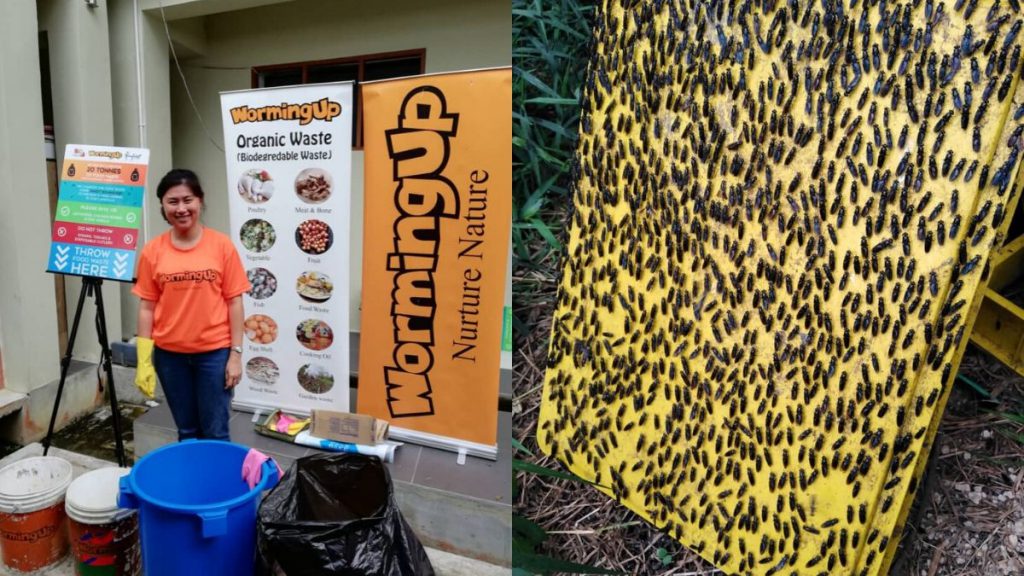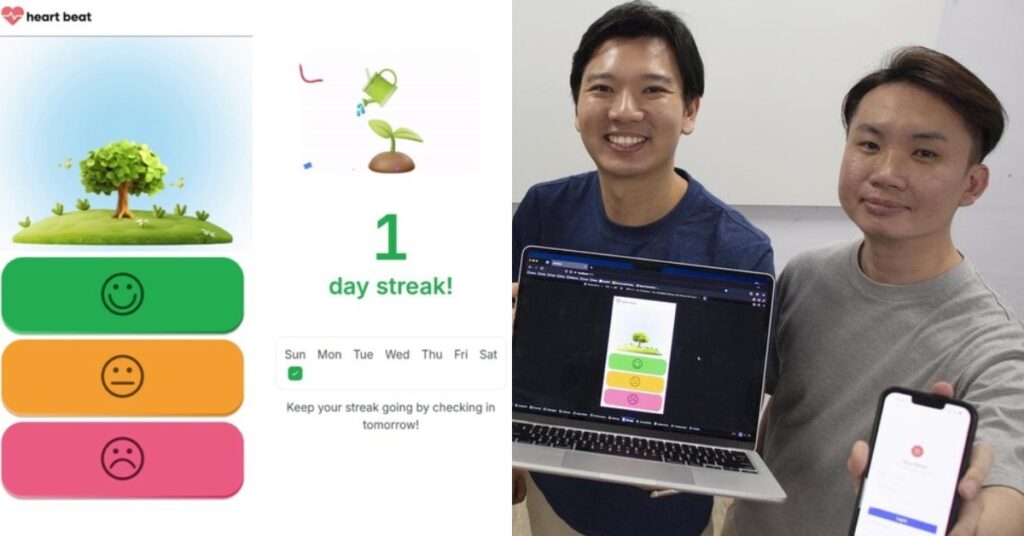Author’s Blurb: The issue of food waste has been talked about for as long as I can remember. You’d think that managing it would be a lot easier than managing inorganic waste, but somehow we as a species still struggle with it. On an individual level, not enough of us care.
Back in 2015, Jeff and his university mate Pei Chin were doing a student exchange programme in Mauritius. At their homestay there, they were provided with a bin to segregate organic waste.
Now, how many people can say that they’ve been inspired by maggots? Few of us, I’d say.
But Jeff and Pei Chin are two of the few, and when they discovered that the waste thrown in the bin had disappeared overnight thanks to maggots, they had the beginning of an idea.
They brought this concept back to the small city of Kuching where they lived and started WormingUp, which was aimed at not only reducing organic waste, but also raising awareness and educating the public on recycling, particularly with regards to sustainable waste management.
“We first experimented on using more common houseflies,” Jeff told Vulcan Post. “We sent a sample for lab test and found the gut of a housefly or its larvae has many bacteria.”
“They are also very smelly and not hygienic, so we had to find a suitable alternative, and the black soldier flies (BSF) are the most suitable.”
Contrary to the belief that all flies are the same house pests, black soldier flies actually avoid humans and are found in outskirt areas.
Therefore, they don’t contaminate food nor do they consume food waste, drinking only water as they mate and lay eggs.

Only their larvae consume food waste. To Jeff and Pei Chin, this discovery marked their way forward.
From Backyard Project To Full-Blown Farm
They’ve come a long way from breeding BSF in their own backyards and collecting food waste in a Perodua Axia.
“After 4 years of working, currently we are able to upcycle more organic waste at a scalable processing site and transport it using a truck,” Jeff shared.
“To date, we are actively working with both public-private sectors including local councils, tourism boards, schools, universities, corporations and NGOs. Our initiative also won Shell’s Top Ten Innovators 2018 on an international level.”
However, it took lots of effort to get to where they are today. When they started their fly farm, they couldn’t even get a permit initially because there was apparently no such permit that existed for a business like theirs yet.
“Usually it is hard to let people fully understand our concept in a short period of time. And it is neither being defined in the standard protocol,” said Jeff.
Maggots and rubbish are things that we tend to avoid coming into contact with, after all. However, I believe that the concept is more welcomed now, as other Malaysian social enterprises farming BSF larvae have cropped up.
One example is Life Origin in Peninsular Malaysia, who’s looking beyond food waste management and turning BSF larvae into food not just for animals, but for humans too.
Jeff has also noticed a change in people’s reactions. “Most of the people didn’t understand the concept as they will think that throwing is easier than doing waste segregation, but it changed gradually over the years.”
“There are more stakeholders willing to work with us and understand and value our efforts.”
Small Creatures With A Big Impact
To date, their team consists of 5 full-time staff who run operations and outreach programmes, and volunteers play an important role in the latter too.
Together they have diverted 1,046,188 kilograms of waste from landfills, which includes food waste, used oil, and recyclables, to name a few.
A normal day at WormingUp starts with going to hotels, restaurants, malls, canteens, etc. to collect an average of 100kg in food waste in the morning.
The food waste will then be brought to their farm where pre-treatment begins. It’ll go through secondary sorting, desizing, fermentation and storage.
Then the maggots get fed, with those of age getting harvested. The team will go on to collect BSF eggs, wash and clean them before storing them appropriately where they will hatch.
For their outreach programmes, they will sometimes visit villagers to teach them about sustainable farming, and at hotels, restaurants, malls and canteens, they’ll give waste segregation guiding talks.

According to Jeff, they mainly monetise through services such as green events and workshops. Thus, COVID-19 has impacted them financially and posed a challenge to their operations, with donations keeping them afloat for the moment.
They aren’t taking a backseat though, as they’re still pushing the digitalisation of their business and upskilling their team.
With these efforts, they hope to increase their upcycling impact and mechanise their operations to ease the overall waste management process over the next few years.
Bottom Line: You never would’ve caught me saying this just a year ago, but BSF and their larvae are true heroes. I have yet to visit a BSF farm, but having eaten their larvae and enjoyed it, I think it’s changed my perspective on these creatures. While they tackle food and organic waste like a champ, they make for pretty good snacks for human and animal consumption too.
- You can read more about other social enterprises we’ve written about here.











